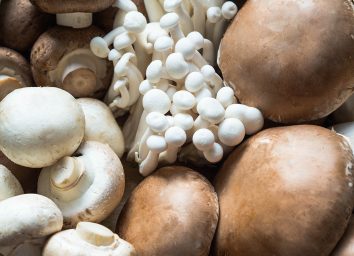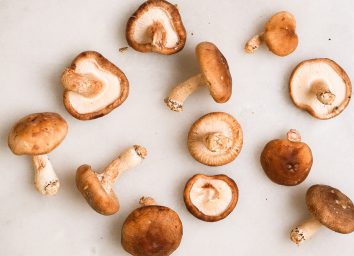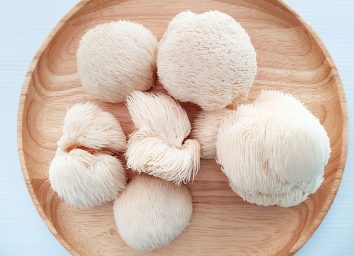6 Incredibly Healthy Side Effects of Eating Mushrooms
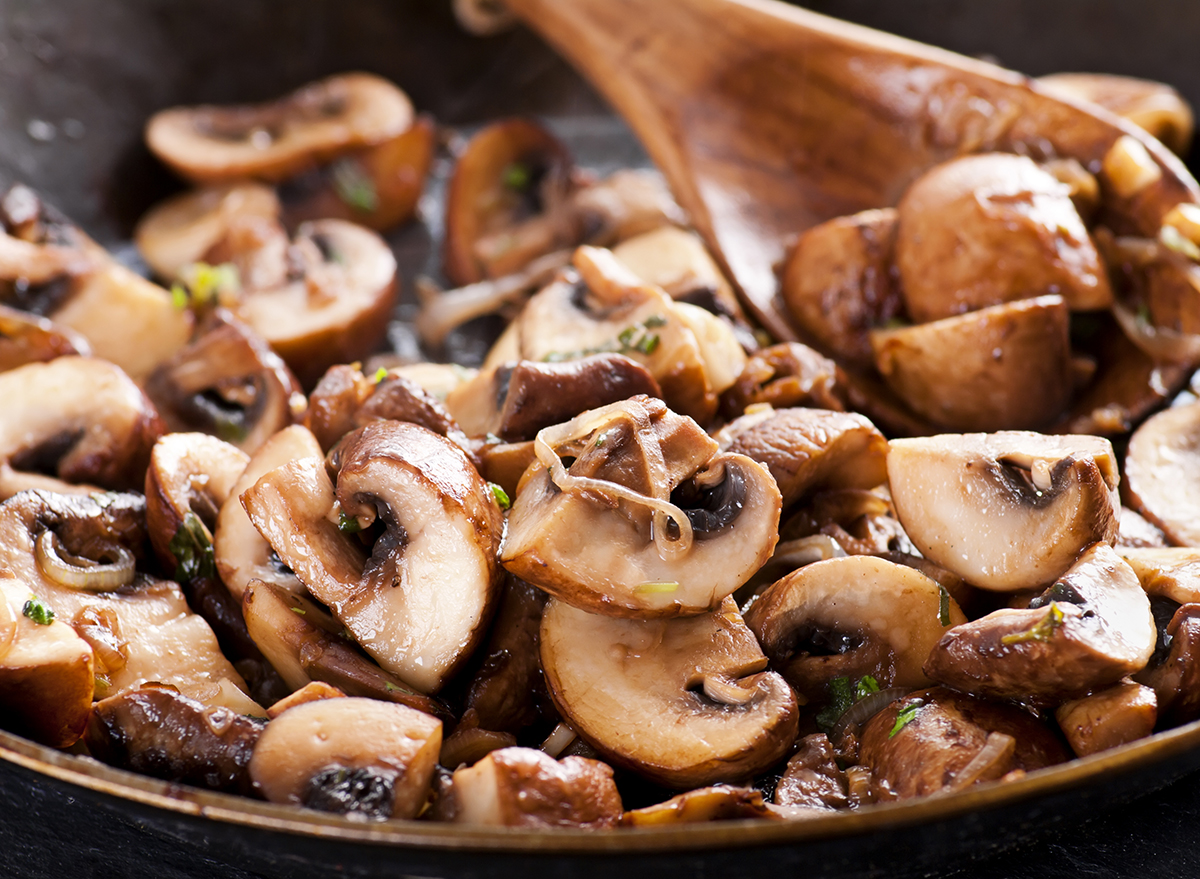
Whether you enjoy mushrooms stir-fried, sautéed, or grilled, this member of the fungi family provides more than a rich umami flavor to your scrambled eggs, appetizers, and entrées.
According to research presented at a March 2021 meeting at the Endocrine Society, white button mushrooms may slow down the progression of prostate cancer. Since the study authors had previously discovered in a phase one clinical trial that this food reduced levels of prostate-specific antigen (PSA)—a protein made by the cells in the prostate gland—in the blood among men with recurrent prostate cancer, they decided to take a deeper dive into this research, but this time, using mice.
Not only did white button mushroom extract suppress androgen receptor activity, but it also inhibited tumor growth within six days. “While more research is needed, it’s possible that white button mushrooms could one day contribute to the prevention and treatment of prostate cancer,” said lead researcher Xiaoqiang Wang, MD, PhD, in a press release. (Related: The 7 Healthiest Foods to Eat Right Now).
It’s not entirely surprising—after all, mushrooms are a low-calorie, low-sodium, and cholesterol-free nutrient-dense food. Mushrooms provide riboflavin and niacin, two key B vitamins typically found in animal sources, which make it an ideal choice for vegans and vegetarians. Plus, this popular meat substitute offers several important minerals such as copper (which helps make red blood cells), selenium (an antioxidant), and potassium (an electrolyte that aids in nerve and muscle function).
Here, we offer five more reasons why you may want to toss some shrooms into the skillet, and then don’t miss 7 Best Foods To Clean Up Your Diet Right Now, Say Dietitians.
By eating mushrooms, you may experience…
A boost in immunity.

According to a study published in the Journal of the American College of Nutrition, cooked shiitake mushrooms could bolster the immune system. Researchers from the University of Florida instructed volunteers (52 healthy adults between the ages 21 and 41) to eat a four-ounce serving of shiitake mushrooms each day for four weeks. In order to not interfere with the results, the participants were also asked to avoid tea, supplements, and probiotics, along with limiting their alcohol intake to 14 servings a week and their fruit and veggie intake to seven servings a day.
Once the experiment concluded, blood tests indicated that the adults showed high levels of a type of T-cell and a reduction in inflammatory properties—two factors that contribute to a stronger immune system.
“Mushrooms may support a healthy immune response since they also contain fiber, antioxidants, and if exposed to UV light, vitamin D,” says Lisa Young, PhD, RDN, a nutritionist in private practice and author of Finally Full, Finally Slim.
Balanced blood sugar levels.
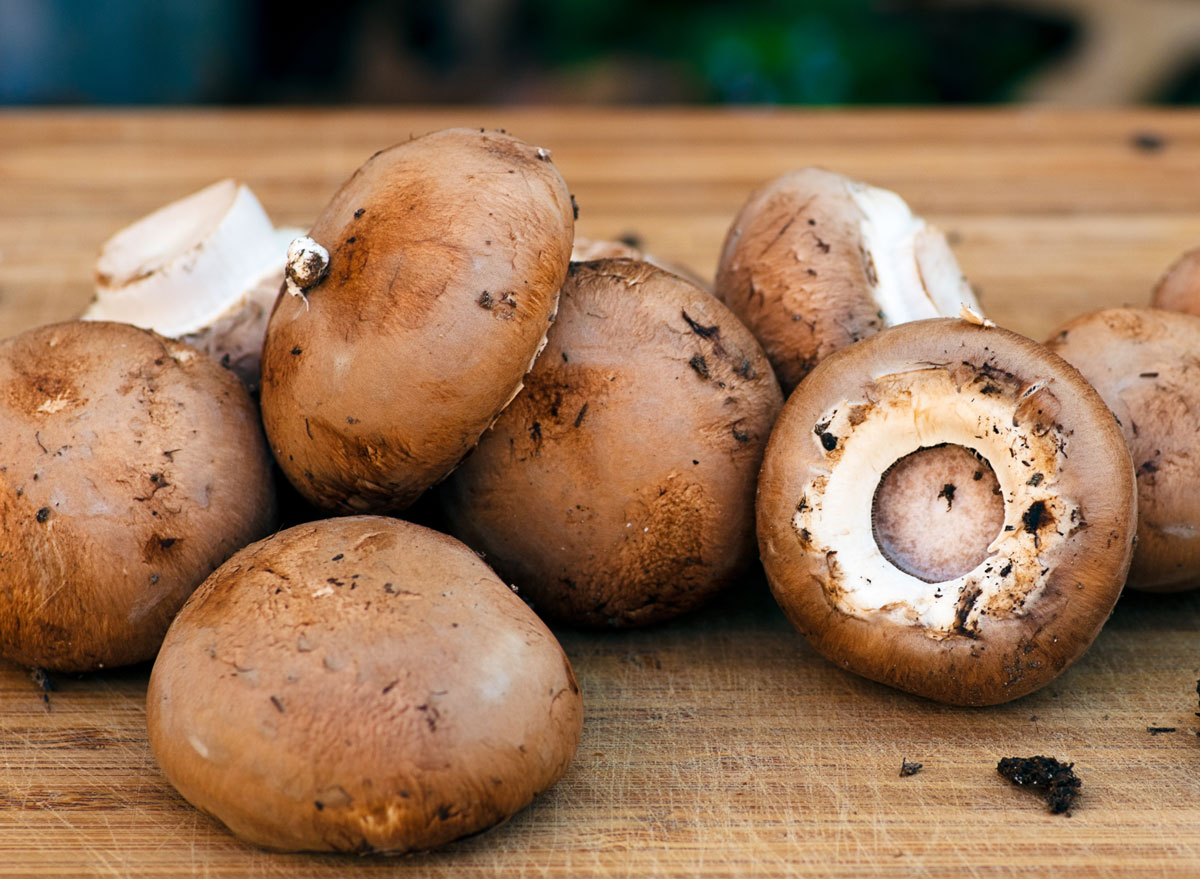
Believe it or not, this promising health benefit actually begins in the gastrointestinal tract. In an animal study conducted by scientists at Penn State, two groups of mice (one with gut microbiota, the other without these microorganisms) were fed a daily dose of white button mushrooms. The rodents with the microbiota who consumed the edible fungus increased their amount of Prevotella, a “friendly” gut bacteria, which in turn produced more short-chain fatty acids that have been shown to alter the expression of genes involved in managing glucose (sugar) production in the liver.
“It appears the mushrooms act as a prebiotic by helping to feed the ‘good’ bacteria that is already present in the gut,” says Mitzi Dulan, RD, CSSD, founder of SimplyFuel.com. “So eating mushrooms can create a small shift in gut microbes which may improve glucose regulation. Whenever you find a food that could potentially help balance blood sugar levels, it’s exciting!”
A lower risk of cognitive impairment.
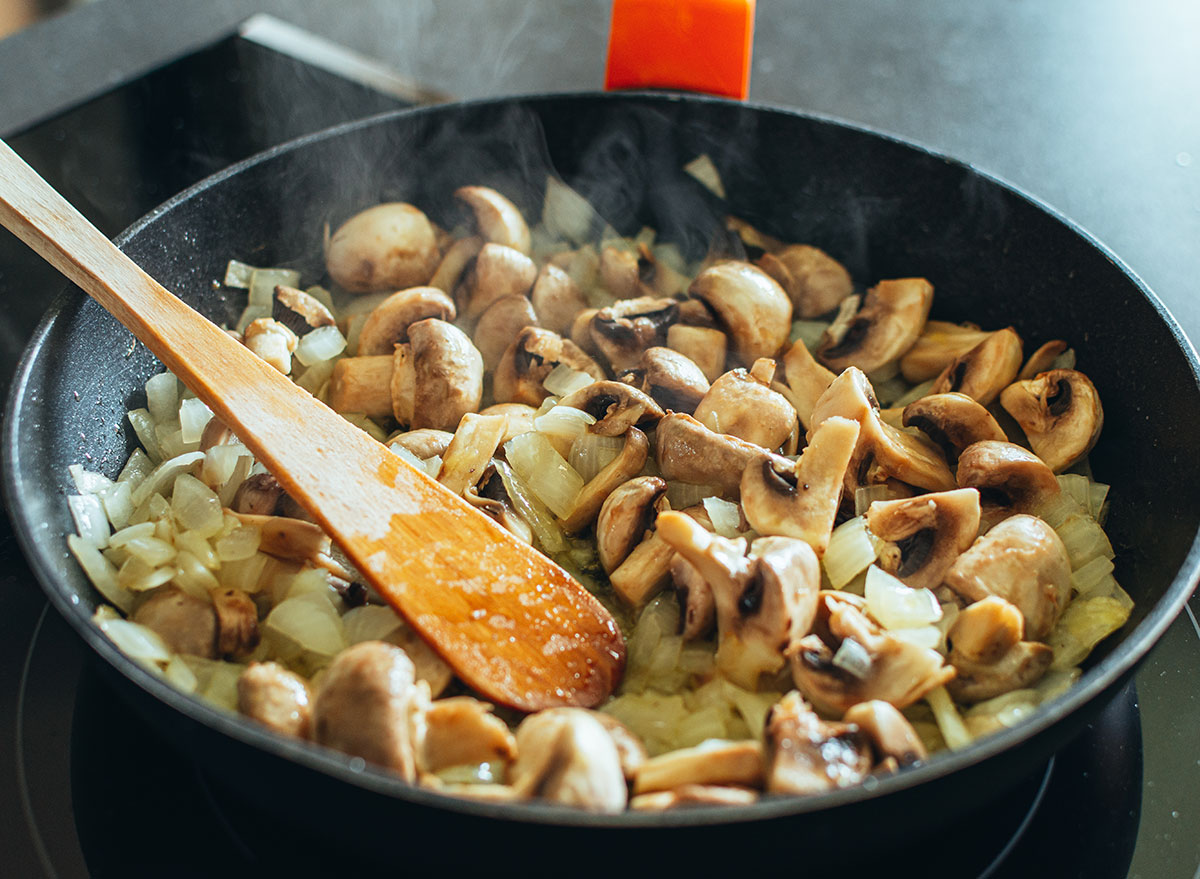
Doing crossword puzzles may not be the only way to keep your memory and decision-making skills intact. Researchers from the National University of Singapore analyzed the medical records of more than 600 senior citizens over a six-year period. In order to evaluate cognitive health and offer a dementia rating, nurses conducted extensive interviews and tests to assess the patients’ dietary habits, psychological factors, walking speed, depression, anxiety, and cognition. Their findings, which were published in the Journal of Alzheimer’s Disease, stated that adults who ate two servings of mushrooms each week slashed their risk of mild cognitive impairment in half!
Interestingly enough, the seniors consumed six types of mushrooms—dried, canned, golden, oyster, shiitake, white button mushrooms—and the authors theorize that these brain benefits would apply to other varieties, as well.
Reduced signs of aging.
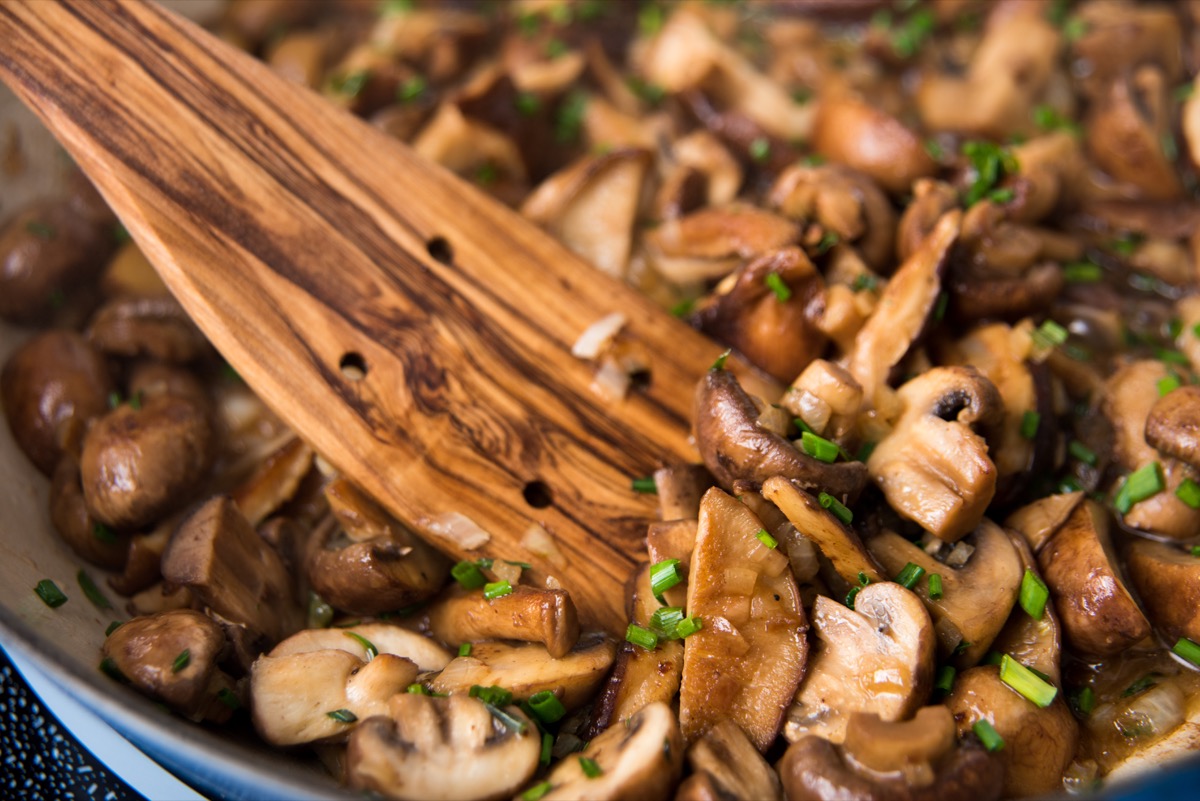
Are mushrooms the Fountain of Youth? Researchers from Penn State studied the compounds in mushrooms and discovered that mushrooms are abundant in ergothioneine and glutathione.
“These are two antioxidants that can help counter the free radical destruction which occurs with aging,” Young says. And this is because antioxidants play a role in protecting the body from cellular damage associated with numerous age-related chronic conditions, such as Alzheimer’s disease, cardiovascular disease, and cancer.
While the antioxidant content differed among the 13 types of mushrooms tested (porcini took the top spot), the mushrooms that landed further down on the list (like white button) still provided a large amount of these oxidative-stress-fighting compounds. Even better: Cooking the mushrooms did not affect their antioxidant properties.
“What we found is that, without a doubt, mushrooms are the highest dietary source of these two antioxidants taken together, and that some types are really packed with both of them,” Robert Beelman, director of the Penn State Center for Plant and Mushroom Products for Health, in a press release.
A healthier pregnancy.

Mushrooms may have the ability to manage complications during pregnancy. Scientists from Denmark, Ireland, and the United Kingdom conducted an animal study where they treated rats suffering from preeclampsia (a serious, and possibly fatal, blood pressure condition that occurs typically after 20 weeks of pregnancy) with the antioxidant ergothioneine—where large amounts are found naturally in mushrooms.
As a result, the rats experienced a decrease in blood pressure, along with a reduction in harmful substances released in the placenta, according to the research published in the journal Hypertension. The authors are hoping to develop a preeclampsia medication made from this anti-inflammatory compound.
Now, be sure to check out How to Store Mushrooms.
Read more:
- This Is How Much Vitamin D You Should Take After 50, Says Dietitian
- 40 Ways to Stay Healthy After 40, Say Experts
- What to Eat (or Avoid!) for Each Part of Your Day
